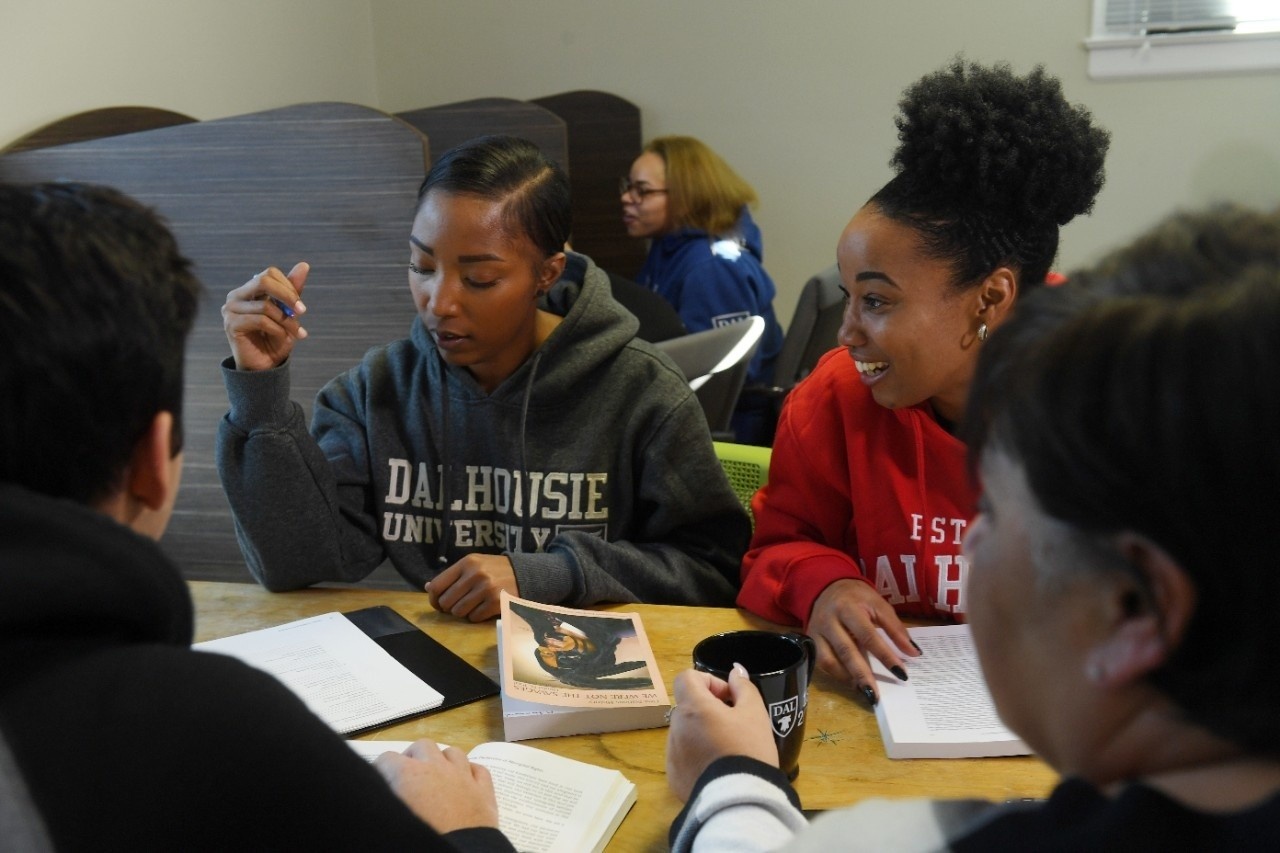Transition Year Program

Get ready to live your university dreams
Do you dream of earning a university degree, but worry you might not have what it takes? Dalhousie’s Transition Year Program (TYP) program might be exactly what you’re looking for—this eight-month program is designed to prepare you for all aspects of academic life. Students receive university credit for the TYP courses.
Dalhousie University has introduced a Tuition Waiver for Former Youth-in-Care that supports former youth-in-care who face unique and multiple barriers to accessing and persisting in post-secondary education. For more information and to apply, visit the website.
Explore Your Potential and Push Your Limits
This program requires hard work and focus, but the results are well worth it. You’ll be challenged and supported, and you may be surprised at what you can accomplish. Past students have gone on to complete degrees in architecture, nursing, law, social work and more.
You will develop essay writing and research skills, gain (or re-gain) foundational math and English skills, learn to study effectively and manage your workload, and earn the confidence to succeed in an academic environment. Download the application form (PDF-127KB)
Practical Skills for Proven Success
It launched in 1970 with the goal of increasing the successful participation of Black and Indigenous students at Dalhousie University. The program has been helping students successfully prepare for university ever since.
Putting the Student First
The Transition Year Program is welcoming and accessible to students who are ready to make a commitment to learning. Financial support, including living allowance, is available to qualified applicants. When you successfully complete the eight-month program, you receive a tuition fee waiver for your undergraduate degree. Meet our Faculty & Staff.
Our Courses
We offer courses that are designed to give you the academic and life skills foundation you need for a successful transition to the academic university environment.
Required courses include:
- Academic Writing;
- Black Studies;
- English;
- Math;
- Indigenous Studies;
- Strategies for University Learning.
Academic Writing and Strategies for University Learning 1 and 2
The first course will help you develop university-level communication and composition skills, along with study skills to facilitate the transition to university. The second course will help you further develop university-level communication and composition skills, along with study skills to aid in the transition to university. These courses may not be used to satisfy the degree writing requirements.
English 1 and 2
The first course covers grammar, basic essay writing, research, documentation, argumentative writing and a wide variety of writing skills. It includes literary material from current and historical essayists. The second course takes English 1 skills to an advanced level. It includes the study and analysis of literary material from current and historical essayists as well as contemporary Mi'kmaq and Black Nova Scotia authors. These courses may not be used to satisfy the degree writing requirements.
Black Studies 1 and 2
The first course focuses on the history of Africa and the emergence of the African Diaspora, interweaving aspects of the African Nova Scotia experience. It provides an overview of African history and the African Diaspora: the integral contribution of African peoples to world history. The second course provides an historical survey of the Black Nova Scotian experience, covering its origins, socio-economic conditions, politics and evolution to the present. The people of African descent in Nova Scotia represent a particular aspect of the African Diaspora.
Indigenous Studies 1 and 2
In the first course, we will learn about the history of Indigenous Peoples in what is now known as Canada. We'll move through the pre-contact era to the historical relationship between the British Crown and First Nations Peoples with an emphasis on Indigenous perspectives on history, land, treaties, self-government and oral traditions.The second course will have you delving into colonialism, imperialism and other key issues facing Aboriginal peoples, both historically and in present day.
TYP Math 0034 and 0035
The first course covers signed numbers, order of operations, fractions, decimals, exponents, polynomials, equations, algebraic fractions, and graphing. Homework is checked regularly. Several tests and two major exams are given. The second course covers a diverse array of topics that include: fractions, decimals, exponents, polynomials, algebra, graphing, probability, and statistics. Homework is regularly assigned and marked, and several major exams are given during the year, including a three-hour final in April.

